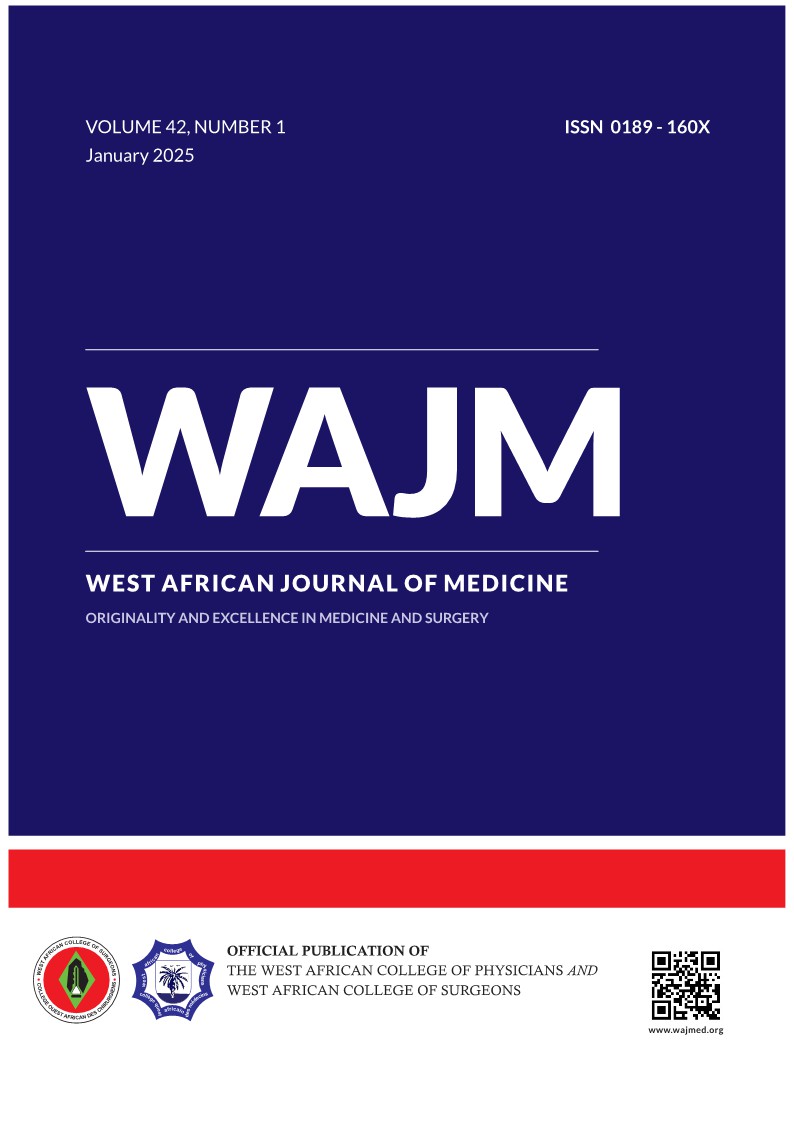ORIGINAL Assessing the Efficacy of Peko-D Forte as Add-on Therapy for Parkinson's Disease: A Proof of Concept, Double-Blind, Placebo-Controlled Study
West Afr J Med. 2025 January; 42 (1): 61-66 PMID: 40548419
Keywords:
Nigeria, PD Pharmacotherapy, D add-on therapy, Parkinson's Disease, Peko-D Forte, Placebo-controlled study, Proof of Concept Study, West AfricaAbstract
Background: Hypoestes rosea, an endemic shrub in Nigeria and Cameroon with documented anti-inflammatory properties, has been shown to modify disease progression in transgenic mouse models with Parkinson's Disease PD. We investigated the efficacy and side effect profile of Hypoestes rosea (Peko-D forte) in improving motor performance of PD patients.
Methods: This double-blind, randomized, placebo-controlled, proof-of-concept (phase I) study involved 19 patients with mild to moderate PD. Routine dopaminergic therapy was maintained. Following randomization, half of the patients received 4 capsules each of 350 mg Peko-D forte tablets, and the other half, 4 capsules of matching placebo (USP-grade starch) for 8 weeks. After a wash-out period of 4 weeks, patients were switched over (cross-over design). The effects of the medication on motor activity were analyzed using the Unified Parkinson's Disease Rating Scale (UPDRS).
Results: Overall, 14 patients completed the study, comprising 93% males with a mean age of 72 (13.2) years. Their median (IQR) UPDRS score at baseline of 18 (13-20) improved significantly with both Peko-D forte 12 (6 - 16) and placebo 12.5 (9- 15) (p<0.001). Compared to baseline, Peko-D forte improved bradykinesis, rest tremor amplitude and frequency, and rigidity. There was no significant difference between the median UPDRS score with the use of Peko-D forte compared to placebo. The test drug had 93% tolerability with a good side effect profile.
Conclusion: Peko-D forte improved motor functions in PD, and it is safe and tolerable. Its efficacy is unclear due to the lack of significant difference between the test drug and placebo. Larger studies will be needed to confirm its efficacy. Clinical Trials.org (NCT04858074).


